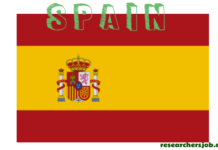Postdoc – Electrolysis for Power-to-X Applications: The Institute of Energy Technologies – Fundamental Electrochemistry (IET-1) is seeking a qualified Postdoctoral Researcher to engage in the characterization of novel high-temperature electrolysis stacks as part of the PHOENIX project. This position plays a pivotal role in advancing technology development within the energy transition landscape.
Postdoc – Stack Characterization for High-Temperature Electrolysis for Power-to-X Applications
Designation
Postdoctoral Researcher (Postdoc) – Stack Characterization for High-Temperature Electrolysis
Table
| Details | Information |
|---|---|
| Research Area | Electrochemical Energy Technologies, High-Temperature Electrolysis |
| Location | Institute of Energy Technologies – Fundamental Electrochemistry (IET-1) |
| Eligibility/Qualification | Master’s degree in Chemistry, Electrochemistry, Chemical Engineering or a related field; Ph.D. required |
| Last Date to Apply | June 4, 2025 |
Research Area
Contributing to the development of sustainable and cost-effective materials and components for electrochemical energy storage and conversion, focusing on Power-to-X applications.
Eligibility/Qualification
- Completed Master’s degree in chemistry, electrochemistry, technical chemistry, chemical engineering, or a comparable field.
- Successfully completed doctorate.
- Practical knowledge of electrochemistry, electrochemical converters, and/or process engineering systems.
- Experience in electrochemical characterization, ideally using techniques such as impedance spectroscopy.
- Scientific experience in solid oxide fuel cells (SOFC) and/or solid oxide electrolysis (SOEC) is an advantage.
- Proficiency in software tools such as Origin, Matlab, Python/Matplotlib for data processing and evaluation.
Job Description
As a Postdoctoral Researcher, you will be responsible for:
- Planning, supervising, and implementing innovative experiments with solid oxide cells in both electrolysis and fuel cell modes.
- Characterizing repeating units during stack operation through various techniques like DC and AC-based methods.
- Investigating stacks and cells post-test using spectroscopic or microscopic methods and optimizing processes.
- Advancing measuring methods and technology, improving experimental equipment.
- Presenting results at conferences and publishing in leading journals.
- Mentoring doctoral candidates, students, and staff.
- Supporting project management via coordination, public relations, and knowledge transfer.
How to Apply
Interested candidates should submit their applications through the official application portal. Please refer to the Application Tips & FAQs section for detailed instructions.
Last Date for Apply
June 4, 2025









